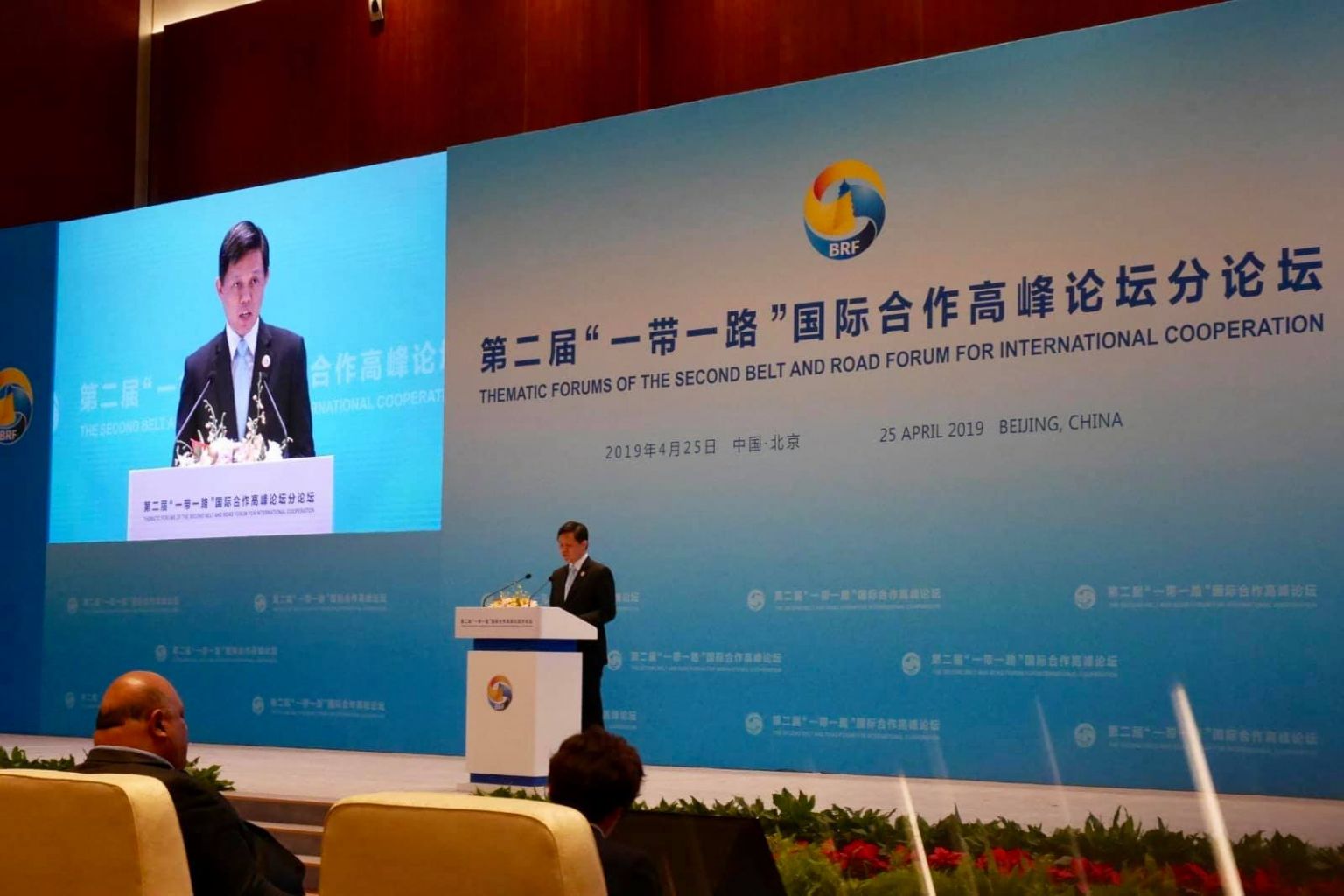With right fundamentals in place, Belt and Road Initiative can spur global growth: Chan Chun Sing
Sign up now: Get insights on Asia's fast-moving developments

Speaking at two forum discussions in Beijing on April 25, Minister for Trade and Industry Chan Chun Sing called on nations to join hands on China's Belt and Road Initiative.
PHOTO: CHAN CHUN SING/FACEBOOK
Follow topic:
BEIJING - Global trade is undergoing rapid transformation caused by technological disruption and shifting supply chains, but China's Belt and Road Initiative (BRI) can spur trade and investment provided the right fundamentals are in place, Minister for Trade and Industry Chan Chun Sing said in Beijing.
Speaking at two separate forum discussions here on Thursday (April 25), Mr Chan called on nations to uphold the global trade architecture that has brought the world much prosperity in recent decades by joining hands on China's BRI, a plan to connect countries through more and better infrastructure.
Noting that the BRI had focused on building physical infrastructure like roads and railways in its first five years, Mr Chan said countries should now look at other ways to make the initiative more well-rounded.
"As partners of the BRI, we must enhance it with the softer aspects of trade connectivity such as data, talent, technology and finance," he said.
For instance, Singapore's one-stop Networked Trade Platform launched last year that connects systems and reduces data duplication as goods move across countries saves traders time and money, he noted.
At the regional level, Asean is also building a Single Window to facilitate trade while cutting administrative costs, he added.
Countries should also leverage their comparative advantages and work together to deepen the network effect brought about by cooperation, said Mr Chan.
An example of this is the China-Singapore (Chongqing) Connectivity Initiative - New International Land-Sea Trade Corridor (CCI-ILSTC) which, as an open and inclusive network, has effectively cut shipping time between western China and South-east Asia by two-thirds, he said.
To guide the next phase of the BRI's development, Mr Chan suggested that projects follow three fundamental principles.
The first is to ensure all stakeholders have joint responsibility, both in project selection and execution. Projects must meet market discipline and "steer clear of non-economic considerations to bring real benefits to the partners and the people we serve", he said.
"There must be clear accountability, transparency and value for money for the public," he added.
Long-term financial and environmental sustainability should also be a clear priority, as this would create more prudent and viable projects that serve not just the current but future generations, said Mr Chan.
The third principle is upholding the rule of law, as long-term investments require mutual trust and consistent rules.
This creates a stable and predictable environment where commerce is governed by consistent rules, contracts are enforced and investments are protected in a fair and neutral manner.
"With the right fundamentals and both hard and soft connectivity in place, the BRI can accelerate the exchange of goods, people and ideas for the common good of all," Mr Chan said.

